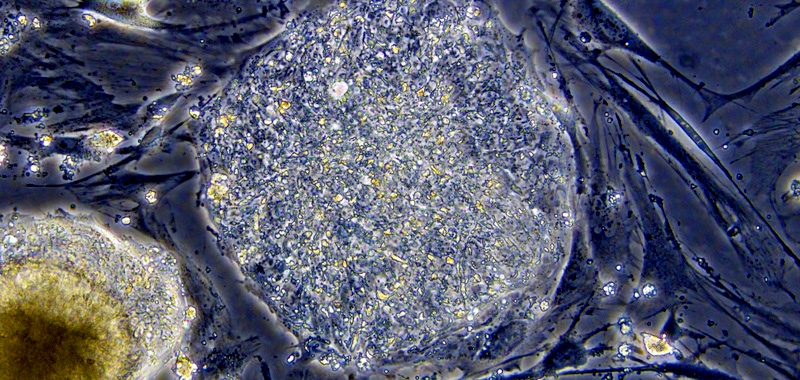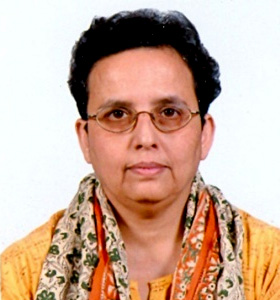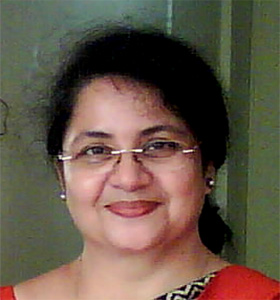
Stem cell research needs awakening and awareness in India
TLSW LifeScienceworld brings out a feature on Stem Cell-the hot subject in the medical research the world over.
It is almost accepted, that stem cell is the future medical technology and future therapy and treatment for diseases.
Stem cells are found in some parts of the body viz., umbilical cord, bone marrow, embryo etc which can renew itself to produce more stem cells and can repair the body.
Research so far has proved that stem cells therapeutically have the capacity to treat human diseases. The medical researchers forecast that stem cell technology can be used to treat variety of diseases like cancer, spinal cord injuries, Parkinson’s disease, liver cirrhosis, diabetic etc
These research are still in the early stage and trials are being conducted. Some of the trials have proved effective in certain areas but these results cannot be considered conclusive.
The US government is fully backing the research in stem cell with substantial amount of funding , and some of the top pharmaceutical companies too are into this area investing in a big way. India is into stem cell research in a very big way with the Department of Biotechnology, Government of India, allocating special fund for development of research and trials.
Some of the leading institutes in India conducting research are National Centre for Biological Sciences (NCBS) , AIIMS, L.V. Prasad Eye Institute, Center for Stem Cell Research at CMC Vellore and National Centre for Cell Sciences (NCCS) at Pune University.
But the biggest worry is lack of proper regulatory framework and ethical norms. What is available now is just guidelines. This has led to mushrooming of many clinics and some nursing homes too, claiming successful treatment being done by stem cell therapy. This has become an unethical, unregulated industry itself. This is leading to misconception on stem cell as a subject, its ongoing research and trials.
With lack of awareness on stem cells, patients are lured by these quacks who in the absence of prevailing non-existence of regulatory framework and rules are conducting unethical business practices which might be harmful.
There are Trials carried out on experimental basis by some of the institutions, hospitals and some doctors in their personal capacities with proper legal formalities fulfilled by appointing Ethics Committee, and going through the set guidelines given by ICMR.
Even though what is conducted as treatment is just Trials, the patients are charged, as there are no sponsors as in the case of trials conducted in Drug development by pharmaceutical companies.
Unfortunately, some of the people involved in the ethics committee and even in the governing agencies are not qualified enough in the area of stem cell and have no knowledge of the subject. It is high time, the institutions, scientists, researchers come together to form a forum or a lobby group to take up the issue with regulatory authorities and other government agencies
Stem cell Research – The Road Ahead
In Feb. 2009, TIME magazine featured a cover story by Alice Park – ‘How the coming Revolution in Stem cells could save your Life’
The following year in Jan.2010, India Today, a premier news magazine in India featured its cover story – ‘How Stem Cells can Save You’
The story was about ‘ How cutting edge stem cell research in India is creating a revolution in the treatment of a range of ailments’
Stem cells were touted as the magic cell which could treat Eye disorders (corneal regeneration), Thalsaemia major ( a rare blood disorder ), Heart disorders, Spinal Injuries, Liver diseases and almost all degenerative diseases known to mankind.
The World market for Stem cell Therapy was projected to be $96 billion by 2015.
The Union Government also was promoting stem cell research and clinical trials in a big way. The Department of Biotechnology (DBT) launched over 100 projects at 18 premier institutes across the country to conduct both basic research on stem cells and test its efficacy. “What we have done is to build up the capacity, infrastructure and man power to keep India at the forefront of the brilliant possibilities that will unfold in this decade.” Said M.K.Bhan, former DBT secretary.
Sadly, three years later, in 2013, Stem cell research and clinical trials have come to a complete standstill. Industry seems wary of taking up clinical trials. Basic research in stem cells continue but only those supported by the DBT.
The following may be some of the reasons for the decline of interest in stem cell research and clinical trials.
The Industry has realised that stem cells cannot be the panacea for all the degenerative diseases and are successful only in some diseases like osteoarthritis, ischemic limb, diabetic foot ulcer, corneal regeneration, strokes, etc but not in diabetes, kidney disease, spinal injuries and other disease where more research and more and more clinical trials on larger and varied groups has to be done before the safety and efficacy of stem cell therapy can be established.
The failure of the Government to declare stem cell therapy for diseases where trials have conclusively proved the safety and efficacy of stem cell therapy as standard of care treatment.
The Draft Guidelines for stem cell research 2012, which make it mandatory to run clinical trials for the use of stem cells for therapeutic applications even for types of cells prepared using standard established technologies and reagents. This poses an eminent threat to the commercial use as only a very few facilities in India have facilities for research and clinical trials. It would also be a set back to the Industry to re-establish to meet the stringent requirement under the Guidelines to generate preclinical information and clinical data before commercialisation.
Lack of any law governing stem cell therapy, which has led to mushrooming of clinics who are injecting stem cells procured from dubious sources into patients and claiming miraculous cures , which is not only endangering the lives of patients but also discrediting stem cell research.
Stem cell clinical trials require heavy funding as the patient enrolling for clinical trials cannot be charged, further there is the question of compensation to the subject in case of mishap or adverse effects due to the trial. This discourages the smaller players and independent investigators to find sponsors for clinical trials. The DBT/ICMR do not support these smaller players for clinical trials. The bigger players do not want to get into this area until there are clear regulations and they find it commercially viable.
However the Government has now realised due to the lobbying from the Industry that if India has to be in the forefront of Stem cell Research and clinical trials and take forward the initiatives gained in this field by our Scientists, Researchers and clinicians, it has to act and act fast. .
With this end in view, the Ministry of Health and Family Welfare, Govt of India under DCGI has constituted a high powered committee consisting of following experts.
Prof. Lalji Singh, Vice Chancellor, BHU, Varanasi (Chairman).
Dr. Gopal Pande, Chief Scientist, CCMB, Hyderabad (member).
A member from the Stem cell Industry.
An expert member from the Academia
The committee will submit its report on the formulation of regulations for stem cell and other cell based therapies in two months time
LSW along with the Scientists, Researchers, Clinicians, Industry and the patients looking for a viable and affordable alternative to conventional medical treatment hope that the new regulations will make the road ahead smooth and clear for stem cell therapy.
Exclusive Report
One of the pioneers in the area of stem cell research in India, Dr. S G A Rao has set up ‘Stem Foundation’ to form a lobby group and take up issues related to clinical trials and lack of government support.
In an exclusive interview to LSW LifeScienceworld, Dr.Rao expresses his views on the current status of stem cell research and trials and the challenges that the scientists and researchers are facing.
LSW : With more than three decades of research on stem cell having associated with (CRI) Cancer Research Institute, Tata memorial Hospital, Mumbai what was the perception about stem cell during that time?
Dr. SGA Rao : Though stem cell was already discovered , it was not known until embryonic stem cell was discovered in 2001. The director of Cancer Research Institute Dr.Bhisey, totally ignored my effort. Actually he closed down the stem cell biology division as soon as I left CRI.
LSW: You established India’s first cord blood bank in 2002 approved by DCGI. Since then, many other cord blood banks have come into existence. Is Cord Blood Banking a very good commercially viable proposition?
DR.SGA : More than the commercial benefit there is Medical use.
LSW : . There are no regulatory framework with regards to stem cell research and trials except some guidelines laid by ICMR. This has led to mushrooming of many clinics and nursing homes in the country claiming success in stem cell treatment. What should be done in your opinion to stop this unhealthy activity?
Dr. S.G.A ‘ The important issues that need to be sorted, if the anomalies which have crept into adult stem application in regenerative medicine are to be removed are :
1. Lack of any kind of law to govern stem cell therapy.
2. Since there is no law it is not possible to control indiscriminate use of adult stem cells.
3. ICMR cannot do this because it is only an advisory body, only Drug Controller can do it but he can do it if there is a law which clearly defines collection, enrichment, culture, storage and use in specific disease.
4. An amendment in the Drugs and cosmetic Act like the cord blood rule passed recently should be done for adult stem cells such as from bone marrow, adipose tissue etc.
5. Once the above is enforced the stem cells will be safe for clinical use, unlike now where anybody with a laminar flow hood can start making and selling stem cells for clinical use endangering patient's life and enriching himself.
6. The Govt. can then provide funds to stem cell companies which fulfill the manufacturing norms to collaborate with clinical partners and carry out controlled trials in multiple centers.
7. The results of these trials along with those done earlier and the internationally conducted trials should be used to decide which degenerative disease can be treated and to what extent.
LSW : You have set up ‘Stem Foundation’ sometime last year. Can you briefly mention the purpose of this and the functioning of the Foundation?
Dr.SGA : Stem Foundation is set up to promote and support the causes of stem cell research and clinical applications. Stem Foundation has been trying to support the cause of stem cell research on its own for the past few years but has not been able to make much headway as it requires heavy funding and also due to lack of any support from the Government.
To promote Stem cell research, Stem Foundation will be conducting lectures, workshops in leading research institutes and medical and biotech colleges/institutions/universities.
To provide financial support to patients who cannot afford treatment for degenerative diseases such as chronic kidney failure (dialysis and other support), cancers of all types etc.
To provide support for carrying out scientific and clinical research in Regenerative Medicine.
Stem cell activity – A Worrying Factor in India
Due to lack of regulatory framework, there are many clinics and nursing homes mushrooming in the country claiming success in stem cell treatment. This is leading to misconception on stem cell as a subject, its ongoing research and trials. What should be done to prevent this practice LSW LifeScienceWorld features comments by some of the experts on the current scenario in the stem cell field and their valuable suggestions to stop the unethical practices that are going on in the name of stem cell treatment and how awareness has to be created.
Dr. Gopal Pande, Sr. Scientist, CCMB, Hyderabad, India

"It is true that at present the guidance and regulation of cell based therapies for human diseases in India is inadequate. This could have lead to some non-scientific or unauthentic practice of cellular therapies on human beings in certain hospitals and clinics. Revised guidelines prescribed by ICMR and DBT have provided some direction to this scenario, however much more remains to be done. The Ministry of Health and Family Welfare Government of India under the DCGI has recently constituted a high powered to committee to make a road map for the practice of cell based therapies including stem cell based therapies in India. It is expected this committee's recommendations would give rise to a effective system that would be useful for this purpose."
Dr. Soma Guhathakurta, Professor, IIT Madras, Dept. of Engineering Design

“Yes, regarding stem cell therapy and its uses, there is CTRI registry where you have to register to do any clinical trial, whether it is stem cell or any other drug. But without going through the norms people are going ahead with it as there is no monitoring. As a monitoring system, CTRI and all these regulatory approvals such as Stem cell Ethics Committee, Institutional Ethics Committee should be made mandatory
Now as we are heading towards FERCAP kind of ethics committee, then the accredit ions of the ethics committee are important
Patient’s awareness is increasing and according to clinical trial rule, patients are demanding compensations even if the damage is not due to clinical trial or drug. Nowadays very few Hospitals ( Corporate Groups ) are involved into these drug trials as these compensation problems are cropping up. Then, who are involved in this kind of work ? The people who are powerful through M.P. connection but small at hospital level are doing it to earn quick money especially from overseas patients or small clinics to gain some name. They also publish some inflated data about the results in their Brochures and websites and Medical Journals.
If that is so, they should also send the accreditation proof from FERCAP to the publishing journals. The journals should also not publish such data without the accreditation proof. This will prevent unethical practices and publishing of inflated data.”
Dr.Ramesh Bhonde,Professor& Dean, Manipal Institute Regenerative Medicine

It is indeed unethical and impractical to play with the hope of patient and his/her relatives by asking them to undergo stem cell therapy.
Stem cell therapy is a developing science. It is still at budding stage. Many things have been proved especially safety of Mesenchymal stem cells. But several things are yet to be understood especially the long term side effects and short term benefits.What we know about stem cells is a tip of iceberg.
Every kind of therapy will have its own merits and demerits. Same applies to stem cell therapy. It cannot be a master key to cure all the diseases. Everyone speaks about one or two success stories. But no one publishes/reports failures. This gives bad name to the future alternative stem cell therapy. Everyone including media jump to conclusion and raise false hope in the minds of a common man. So many clinicians and stem cell companies which are not registered take advantage of people’s ignorance and little knowledge about stem cells. Moreover if the treatment is given free of cost /with minimal cost for terminally ill patients it may serve some purpose. However it is just the other way. All these malpractices are killing enthusiasm of scientific community and true stem cell lovers and researchers. Hence there is a need to make firm law to stop these so called “stem cell therapies”. Registered controlled multi-centric clinical trials should be encouraged.
Dr. Sujata Law, Assistant Professor (Stem Cell Biology), Department of Biochemistry and Medical Biotechnology, Calcutta School of Tropical Medicine, Kolkata

In my opinion, to prevent such fraudulent practices, a stem cell ethical committee should be formed in each and every state in India, where all the members should have adequate stem cell knowledge and experience which will be evident through their international publications on the subject. The members of such a committee would investigate all private and government clinics and nursing homes which claim successful treatment of patients by stem cell therapy. The clinics must provide all necessary documents, files, showing proof of work, and real-life results to the committee to prove their claims. To create awareness among people, knowledge regarding such practices and the current state of stem cell research must be spread to them through media, newspaper articles, internet and scientific meetings.
LSW Lifescienceworld
www.lswlifescienceworld.com